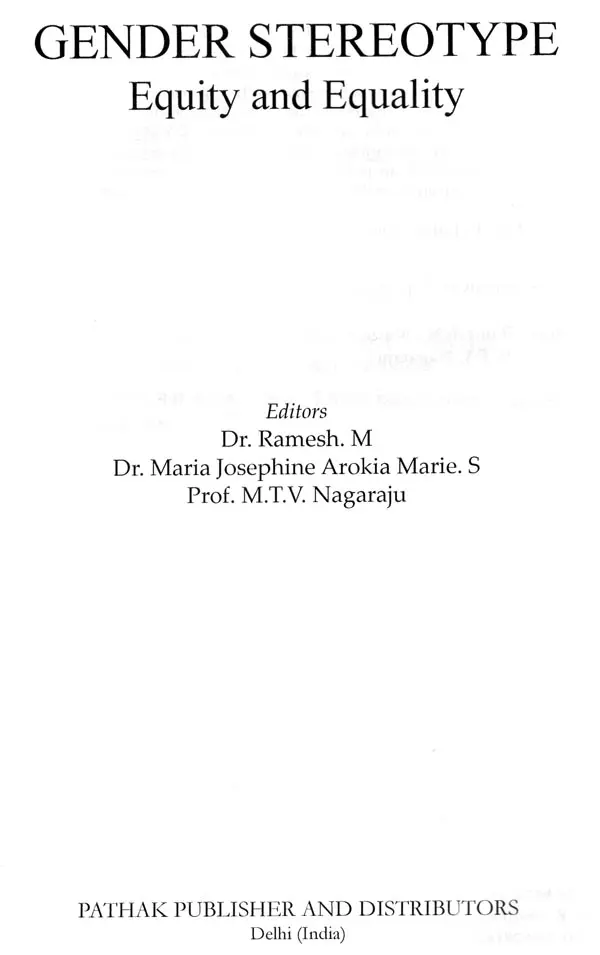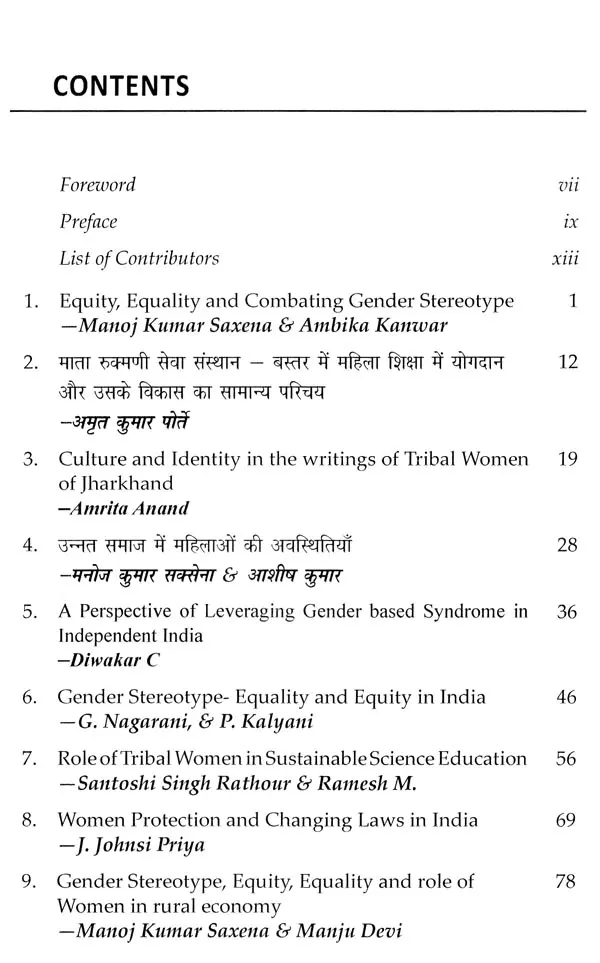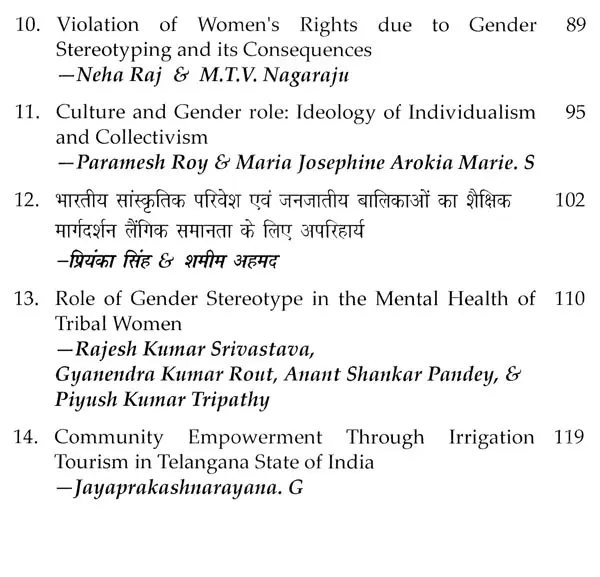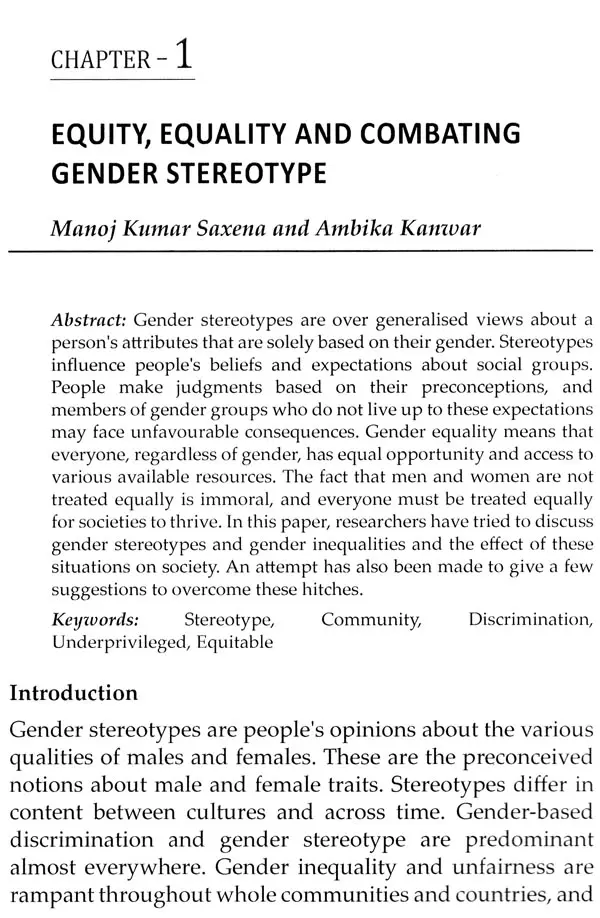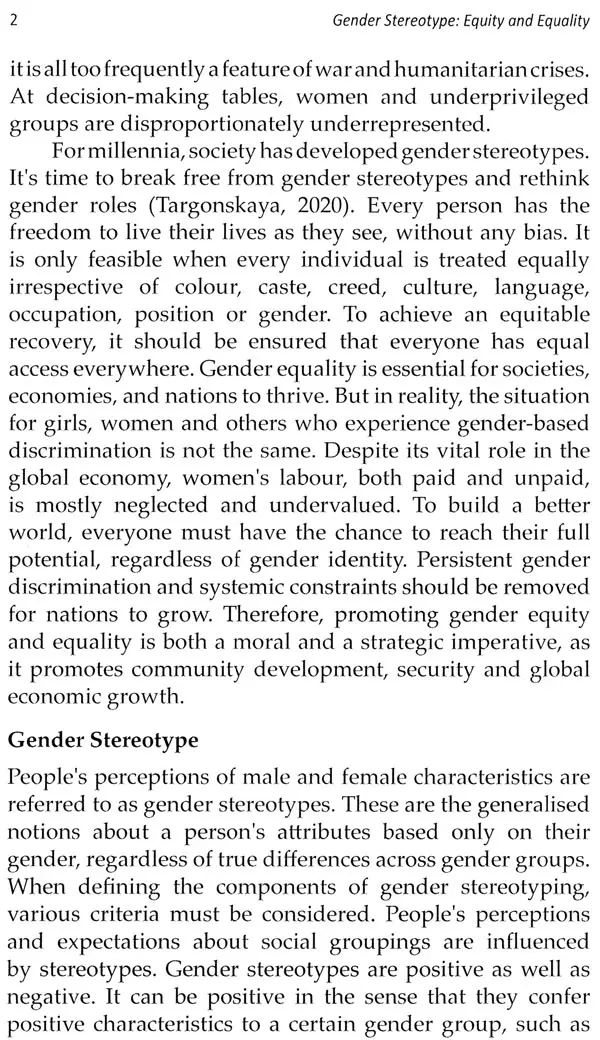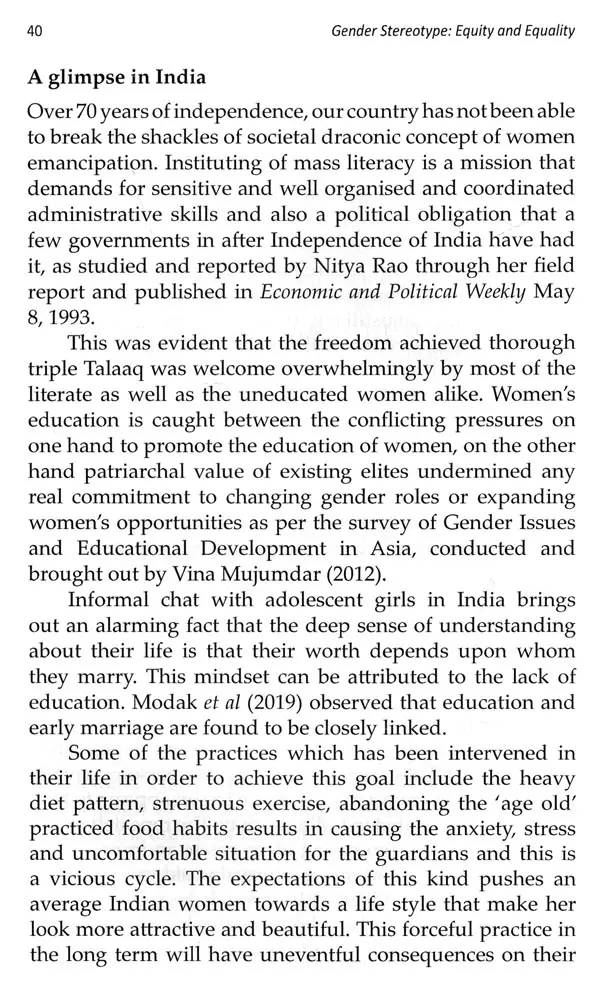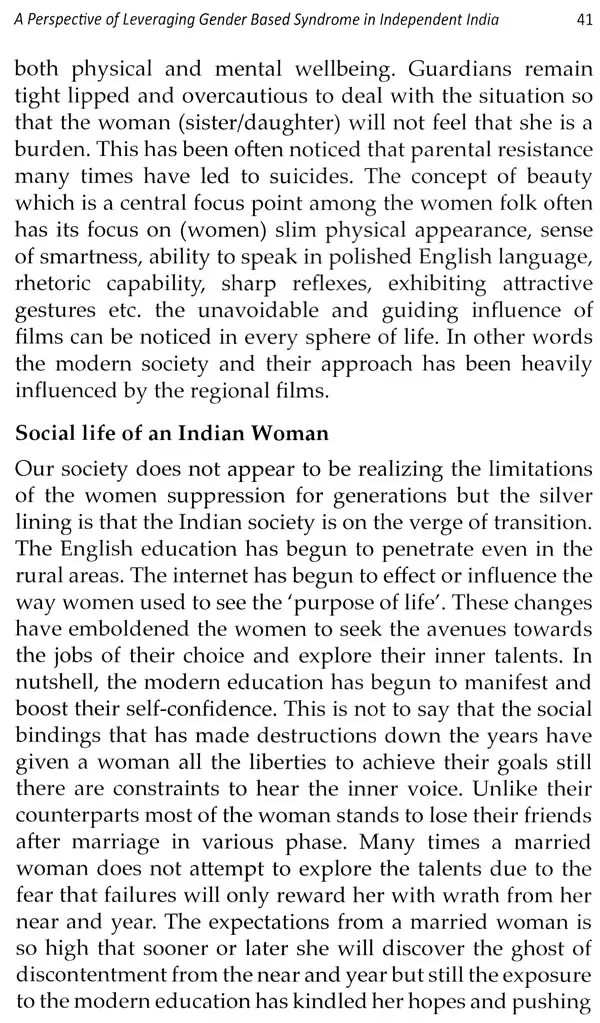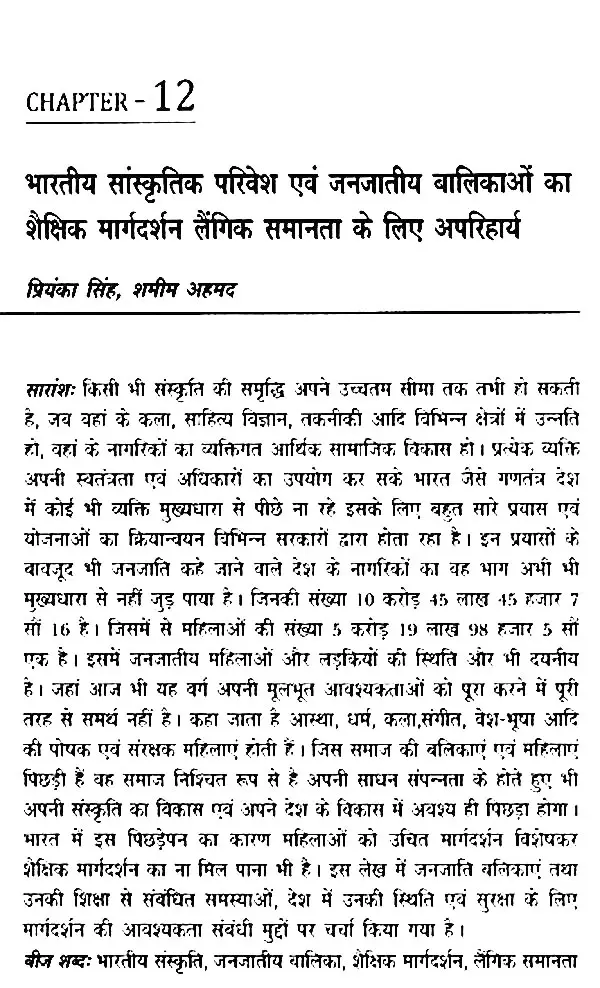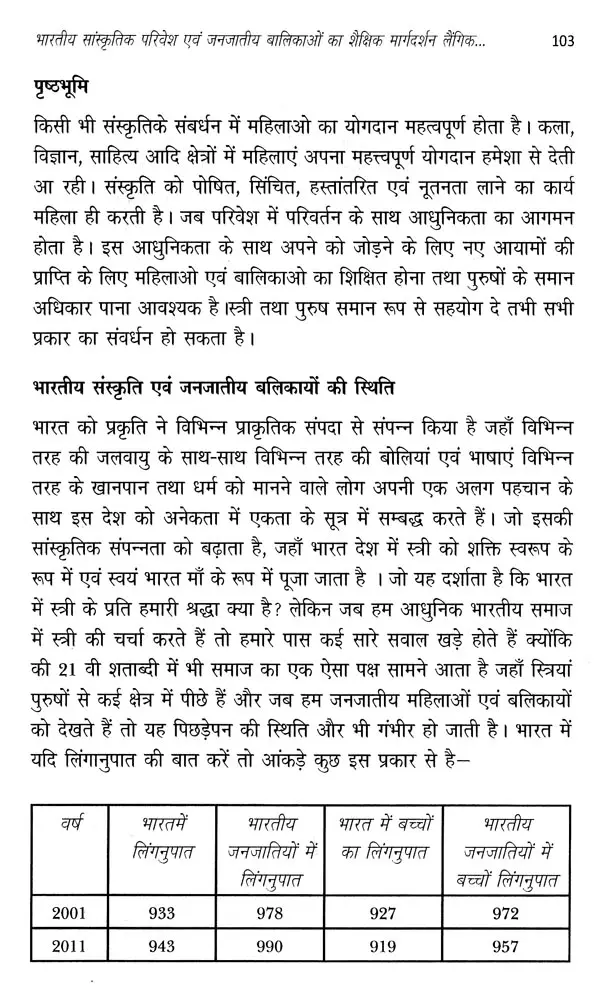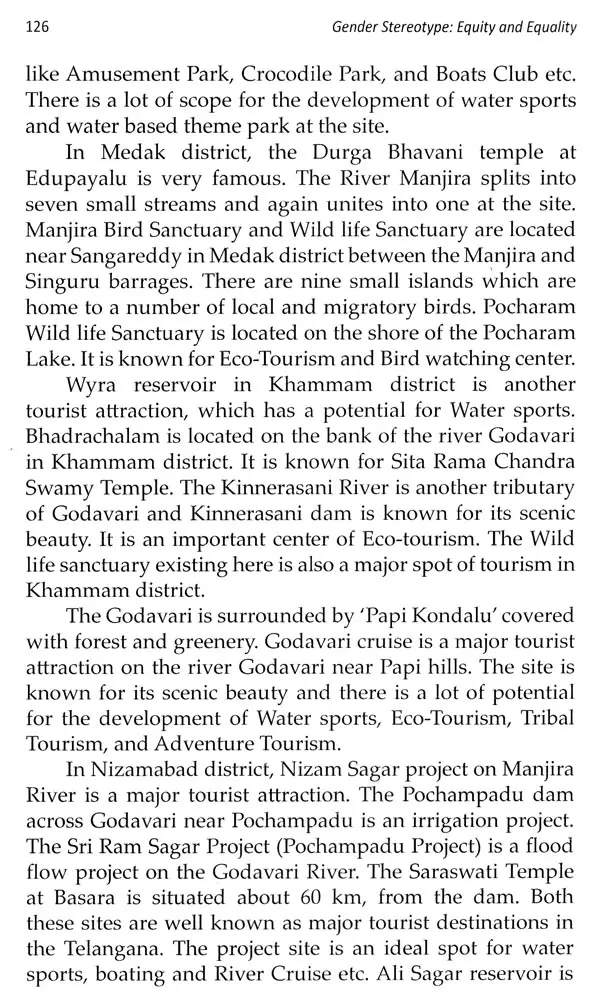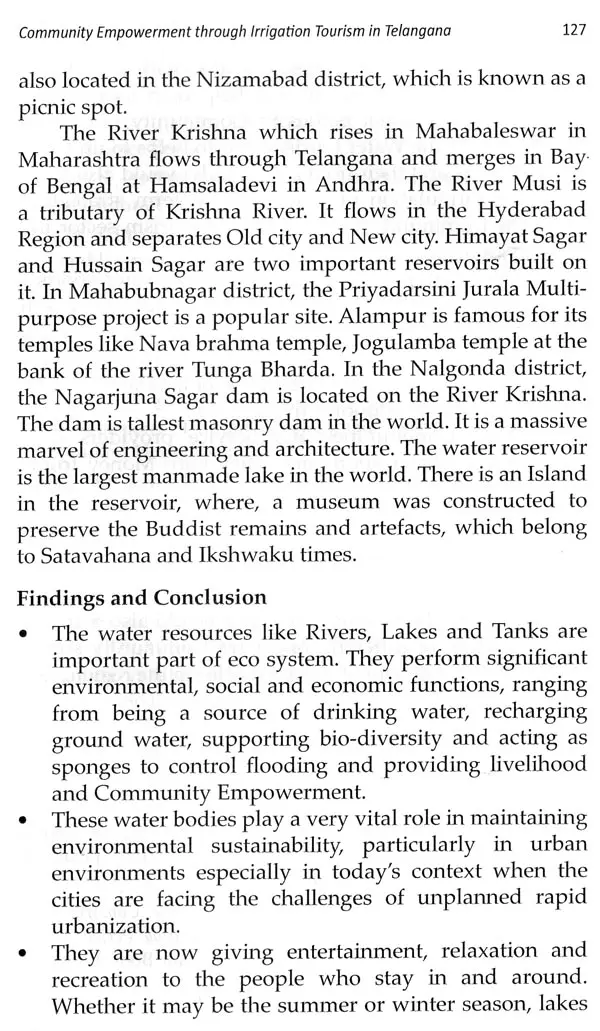
Gender Stereotype Equity and Equality
Book Specification
| Item Code: | UAS444 |
| Author: | Ramesh. M, Maria Josephine Arokia Marie. S and M.T.V. Nagaraju |
| Publisher: | Pathak Publisher and Distributors |
| Language: | Hindi and English |
| Edition: | 2022 |
| ISBN: | 9789391952389 |
| Pages: | 129 |
| Cover: | HARDCOVER |
| Other Details | 9.00 X 6.00 inch |
| Weight | 340 gm |
Book Description
As we all know men and women perform different roles and gain different knowledge, experiences, skills, attitudes but the issues that commonly exist in the society are gender inequalities, gender stereotypes, gender discrimination, and gender biases, and more, though the United Nations 1979 made convention on the Elimination of all forms of discrimination against women, still these conceptions predominantly occur in women and they are the victims' of such beliefs and problems. These unhealthy practices are against human rights and fundamental freedoms in the social, political, cultural, and economic domains. Any form of violence and harmful practices against women may exacerbate or weaken the society. To remove such beliefs and practices, our nation has continuously made effort since independence and achieved success to many extents which brought enjoyment and freedom but still, women are struggling to get equal status to men.
In this context, this book is a compilation of various research and thematic papers contributed by academicians and research scholars published in the title of "Gender stereotypes Equity and Equality." Most of the papers are related to gender stereotypes, and some papers are in gender-related areas such as gender discrimination, equity, equality, women's education and their protection, culture, and identity of tribal women, tribal women in science education, the violence of Human rights and more.
Dr. Maria Josephine Arokia Marie S. presently is working as Assistant Professor of Education at Indira Gandhi National Tribal University Amarkantak, Madhya Pradesh. She did M.Sc. (Chemistry), M.Phil. (Chemistry), M.Ed., Ph.D. (Education), UGC-NET, and SRF, and has more than six years of experience in Research and teaching Science Education, Teacher Education, Educational Technology, Blended Learning, and Educational Psychology. To her credit, she has published many research articles in National and International reputed journals, Scopus indexed and UGC Care listed journals. She contributed her research papers as chapters in many books. She has organized 2 National seminars and completed ICSSR-IMPRESS Major project and one project from RajyaSiksha Kendra, Bhopal. She is a member of various Academic bodies and a reviewer for research journals. Her aspirant tentacles try to reach even far-flung areas to promote education and developmental activities to scale new peaks in social development.
Prof. M.T.V. NAGARAJU is currently working as Dean, Faculty of Education, Indira Gandhi National Tribal University, Amarkantak (MP), India.He has published 33 books, 38 research publications in National and International journals apart that he has presented papers in 10 International and 50 National Seminars/Conferences. Under his research supervision 17 M.Phil, and 6 Ph.D. Degrees in Education were awarded and currently guiding 4 Ph.D. Scholars. He has completed 2 minor and 2 major projects and one is ongoing funded by NCERT. He is a Life Member of the Indian Association of Teacher Educators (IATE) and a Life Member of the Indian Association of Applied Psychologists (IAAP). He has delivered several extension lectures and enlightened the participants.
Book's Contents and Sample Pages
